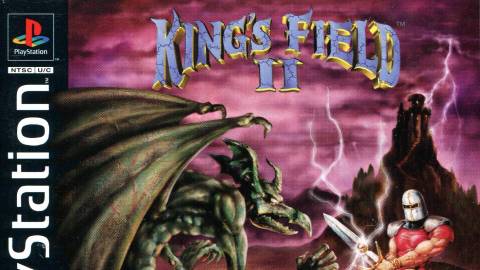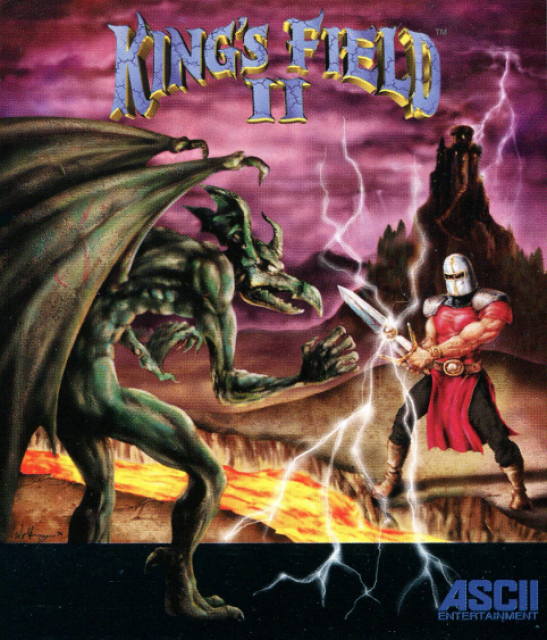Overview
King's Field 3 (King's Field 2 in the West, to avoid confusion the original Japanese numbering for all games will be used) was From Software's last official King's Field game for the original Playstation.
Plot
In terms of plot, the game is a direct sequel to the first (unreleased in the West) King's Field, but takes place after the events of King's Field 2, and some characters from King's Field 2 make an appearance.
15 years ago Alfred (King's Field's protagonist) successfully destroyed a "festering evil" threatening the kingdom of Verdite, and was crowned king of the realm. However, he began to rule erratically and somehow came under the influence of an evil entity, causing the people of the realm to cry out for the aid of Alex (King's Field 2's protagonist).
Upon arriving in Verdite, Alex sought to use the legendary Moonlight Sword to destroy the evil possessing the king, but found that the sword had been broken. Realizing that without the sword, he would be unable to stop the evil King Alfred, he used the broken hilt of the sword and his last breath of life to seal the entire castle of Verdite, with King Alfred inside, behind a magical barrier.
As Alex lay dying, he telepathically sent his thoughts to Prince Lyle, King Alfred's son, begging him to seek out the four guardians of power, break the seal, and face the corrupted King Alfred. The game opens in a gloomy, haunted and ravaged Verdite - under the influence of an evil king, sealed away in a dark castle. As Prince Lyle, the player must seek the guardians, reforge the Moonlight Sword, destroy the barrier, and free Verdite from the influence of his evil father.
Technical Notes
The game runs on the same engine as the last 2 games, and gameplay is largely similar. Unlike the last two games, which both took place entirely within a single, large dungeon, King's Field 3 takes place across the entire kingdom of Verdite - the player traverses the overworld and enters multiple dungeons and areas, in the closest approximation to an open world first person RPG ever seen on the Playstation. While King's Field 2 had an uncapped framerate which fluctuated wildly depending on the environment, King's Field 3 caps the framerate at 20FPS, most likely to keep consistent performance in the larger environments. Despite these limitations, an open-world first-person RPG completely rendered in real-time on the Playstation remains something of a technical achievement to this day.
From would later rebuild the King's Field engine and use it for their final games for the Playstation, Shadow Tower and the Echo Night series - which were more technically advanced but considerably less open and sprawling, making King's Field 3 something of a high water mark for From's Playstation ambitions.
Gameplay
Due to the setting and more ambitious scope of the last game in the trilogy, the exploration aspect is more fully developed here than in previous games, and there are more NPCs to engage with than ever before. The game is rather sprawling and thankfully an auto-map is obtainable in-game, though the player does not begin the game with it.
From Software's traditional "hub-style" map design is evident here - the player will come across several hub-areas as they progress, and within each hub several different areas are usually available for the player to explore at any one time, and the player can choose which to tackle. Even from the very beginning in the first hub area, the game does not prevent players from encountering areas and foes that are far too powerful for them - ridiculously powerful enemies are a sign to the player that they should flee the area and come back later when they are stronger. Within dungeons and other areas, secrets, locked doors, and shortcuts are the order of the day.
While the game may seem primitive, the careful area design, atmosphere, and environmental narrative From Software would later become famous for in the Souls series is remarkably well-developed here, decades before those games reached mainstream popularity.

 PlayStation
PlayStation.png) PlayStation Network (PS3)
PlayStation Network (PS3).png) PlayStation Network (PSP)
PlayStation Network (PSP)






